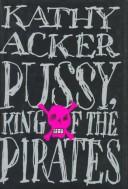277 pages
English language
Published Nov. 7, 1996 by Grove Press.

277 pages
English language
Published Nov. 7, 1996 by Grove Press.
From Publishers Weekly Once again displaying her penchant-and talent-for scavenging extant texts, Acker (My Mother: Demonology) exploits Robert Louis Stevenson's Treasure Island and Pauline Reage's The Story of O, among other sources, fusing the carnal, the cerebral and the surreal into a fantastical tale. The story spans centuries and continents as it chronicles the adventures of O and Ange, whores who retire from the trade and hire a band of girl-pirates to help them find buried treasure. Told mostly through dreams and dream states and with casual shifts in point of view, the novel divides roughly into three sections. The first, "O and Ange," recounts the two women's days of prostitution: in China, O begins whoring at the request of a boyfriend; she then makes a pilgrimage to "the most famous whorehouse in Alexandria," where she meets Ange, with whom she escapes and discovers a map of buried treasure. The …
From Publishers Weekly Once again displaying her penchant-and talent-for scavenging extant texts, Acker (My Mother: Demonology) exploits Robert Louis Stevenson's Treasure Island and Pauline Reage's The Story of O, among other sources, fusing the carnal, the cerebral and the surreal into a fantastical tale. The story spans centuries and continents as it chronicles the adventures of O and Ange, whores who retire from the trade and hire a band of girl-pirates to help them find buried treasure. Told mostly through dreams and dream states and with casual shifts in point of view, the novel divides roughly into three sections. The first, "O and Ange," recounts the two women's days of prostitution: in China, O begins whoring at the request of a boyfriend; she then makes a pilgrimage to "the most famous whorehouse in Alexandria," where she meets Ange, with whom she escapes and discovers a map of buried treasure. The second section, "The Pirate Girls," introduces "King" Pussy, her youth, her two abortions and her sexual history. In the final section, "In the Days of the Pirates," O and Ange hire the pirate-girls and set sail for the treasure island. Acker writes a deliberately affectless, deadpan prose, rendering both the absurd and the disturbing (including several graphic sexual and physiological episodes) with a declarative nonchalance. Like Acker's other work, this campy and enigmatic novel is self-consciously provocative as she detonates her battery of literary and sexual references in order to illuminate themes of masochism and rebellion-but it's also often funny and invariably intelligent. Copyright 1995 Reed Business Information, Inc. --This text refers to an out of print or unavailable edition of this title.